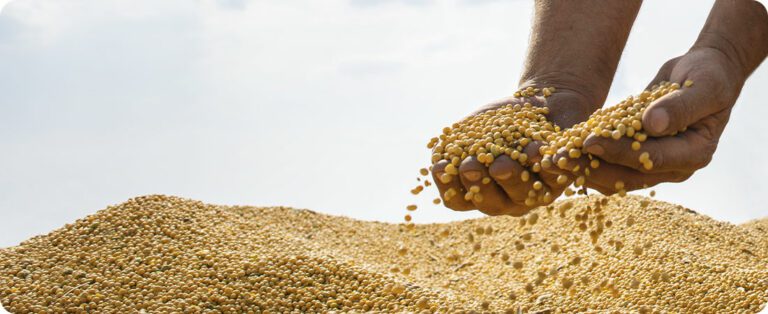
Biofuels companies in the United States and Canada are cutting production to limit losses amid uncertainty over the U.S. president's approach, Donald Trump, subsidies for green fuels and the potential for a worsening trade war.
Impact on the agricultural sector and the biofuels industry
The fractured relationship between the North American neighbors could end a multi-year boom in the biofuels industry that has given farmers growing demand for their crops as fuel makers have been snatching up record volumes of vegetable oils.
Trump's hesitant approach to tariffs is hurting processors on both sides of the border who turn oilseeds into meal and oil, and farmers who are finalizing their spring planting plans.
Uncertainty in subsidies and tariffs
While new U.S. tariffs threaten to make imported feedstocks unaffordable, uncertainty over U.S. biofuel subsidy programs, including a Biden-era tax credit that determines how much producers pay for the oils and fats they turn into biofuel, is further hurting the industry.
The contraction of the green fuels sector could also hurt rural communities and efforts to decarbonize the economy, experts said.
Industry Outlook
“If this uncertainty drags on, which we expect, the biodiesel and renewable diesel industry will contract, but it won’t disappear. It will shrink, painfully at times,” said Paul Niznik, director of energy at Capstone LLC in Houston.
Citing uncertainty and rising costs, Federated Co-operatives Limited has shelved a canola processing and renewable diesel plant project in Saskatchewan, one of five projects slated to expand Canada’s canola production by 60% over five years.
In the US, a biodiesel plant in Iowa was idled in late December and others reduced production, resulting in the lowest output of the fuel in five years. In January, renewable diesel production fell 17% from the 2024 monthly average, according to data from the Environmental Protection Agency.
Production capacity and recent growth
The U.S. capacity to produce biodiesel and renewable diesel has grown by about 60% since 2022, according to government data. These two fuels are chemically unique and are made from animal fats and vegetable oils, such as canola and soybean.
The growth in production was driven by federal policy aimed at reducing greenhouse gas emissions. In addition, this initiative also seeks to reduce the country's dependence on foreign oil. The United States is the world's largest producer and consumer of biofuels.
U.S. soybean crushing capacity increased by 10% in that period, as grain giants such as Archer-Daniels-Midland (ADM.N) and Bunge (BG.N) raced to meet surging demand.
Record oilseed processing margins have helped both companies. Both operate half of Canada’s canola plants and account for nearly 40% of U.S. soybean crushing capacity. Thanks to this favorable backdrop, ADM and Bunge are set to post their best-ever profits in 2022 and 2023.
There is now a glut of diesel produced from non-fossil fuel sources. Given this scenario, both ADM and Bunge have warned that 2025 profits could fall to their lowest level in six years due to market uncertainty.
Turmoil in the USA
Canada ignored the February tariff deadline only to see Trump impose 25% duties on imports on March 4. Two days later, duties on some goods were suspended until April 2.
“How do you set a price when you don’t know if you’re going to be wrong a day later, a month later, six months later?” said Capstone’s Niznik. Meanwhile, the Trump administration has yet to clarify the clean fuel tax credits.
Change in biofuels policy and uncertainties in implementation
Former US President Joe Biden transformed the country’s biofuels policy through his Inflation Reduction Act. Previously, the system offered a fixed credit of US$1.4T1 per gallon to biomass diesel blenders. With the change, the credit became variable for producers. The new value now depends on the carbon intensity of the feedstocks used.
Biden, however, left office without finalizing guidance on how the policy, known as 45Z, would be implemented. It is now unclear whether those rules will take effect, industry sources said.
Impact on the biodiesel industry
That uncertainty is the main reason Western Dubuque Biodiesel has been idle since late December. The biodiesel plant, located in Farley, Iowa, has a capacity of 1 million gallons per year. This is the company’s longest period of downtime since 2010, according to general manager Tom Brooks.
“If I ran it today, I would lose 46 cents a gallon with 45Z. With that credit earlier, I would have made 15 to 20 cents a gallon,” Brooks said.
The industry is also calling on the Trump administration to increase biofuel volumes under the Renewable Fuel Standard, another crucial source of government support for producers.
Under current RFS volume mandates that expire this year, the amount of biodiesel and renewable diesel production supported by the RFS is only 3.35 billion gallons annually, well below the industry’s capacity of about 5 billion.
The EPA, which administers the RFS, did not respond to a request for comment.
Risks on the farm
Canada shipped $6.02 billion worth of canola and canola products to the U.S. in 2023, including $4.37 billion worth of oil. Those products, and any biofuel produced in Canada, face tariffs of $251,000 starting April 2.
“Given the risk, prices are going to fall. Shipments are going to slow. Long-term contracts are going to get very, very tenuous,” said Rick White, president and CEO of the Canadian Canola Growers Association.
Analysts say the uncertain future has already depressed canola prices by as much as US$100 per metric tonne.
U.S. soybean farmers are also expected to reduce planting this spring amid oversupply and weak demand, with crush margins nearly 60% below last year.
Kody Blois, Canada's new agriculture minister, said Monday he was working with Prime Minister Mark Carney to create more demand in Canada.
Meanwhile, Alberta farmer Andre Harpe still has canola from the 2024 harvest.
“Right now, we don’t know whether to sell, hold or dump,” Harpe said.
Farmers may be able to change what they plant this spring, but for a giant crushing plant built to supply what was a growing market for vegetable oils, adapting is no easy task.
“Not knowing what your biggest market will do tomorrow is frustrating, to say the least,” said Chris Vervaet, executive director of the Canadian Oilseed Processors Association.
Source: Karl Plume, Ed White, Stephanie Kelly, Jarrett Renshaw, Emily Schmall and Marguerita Choy | Notícias Agrícolas















